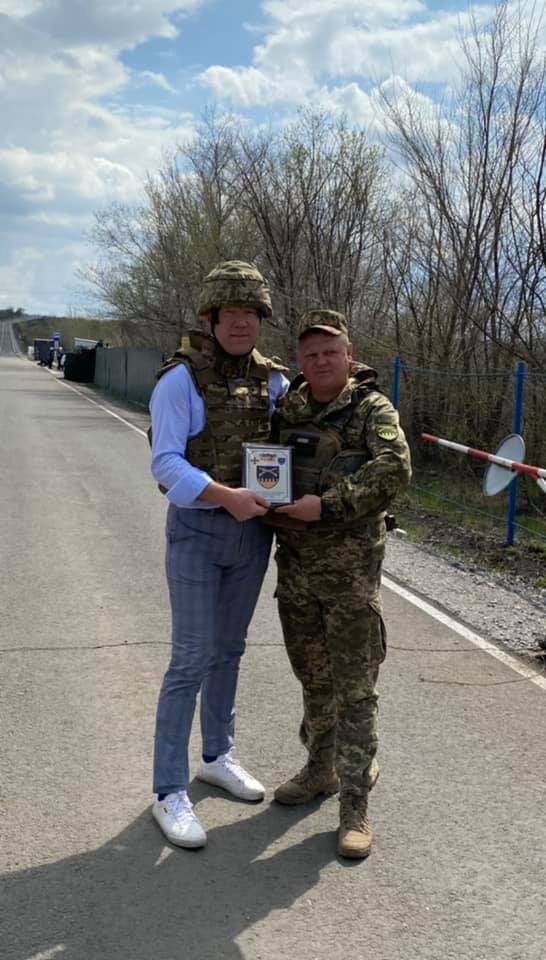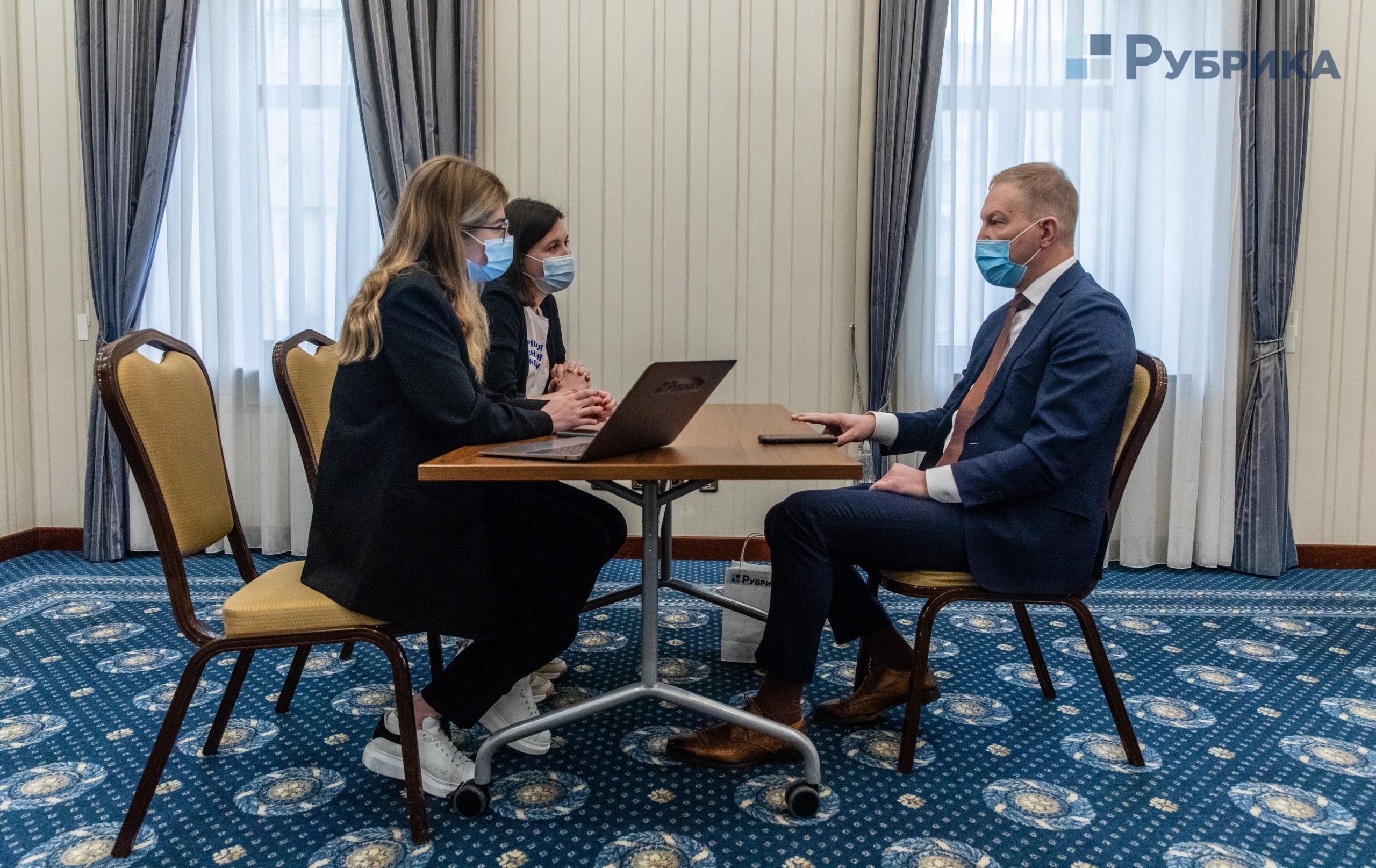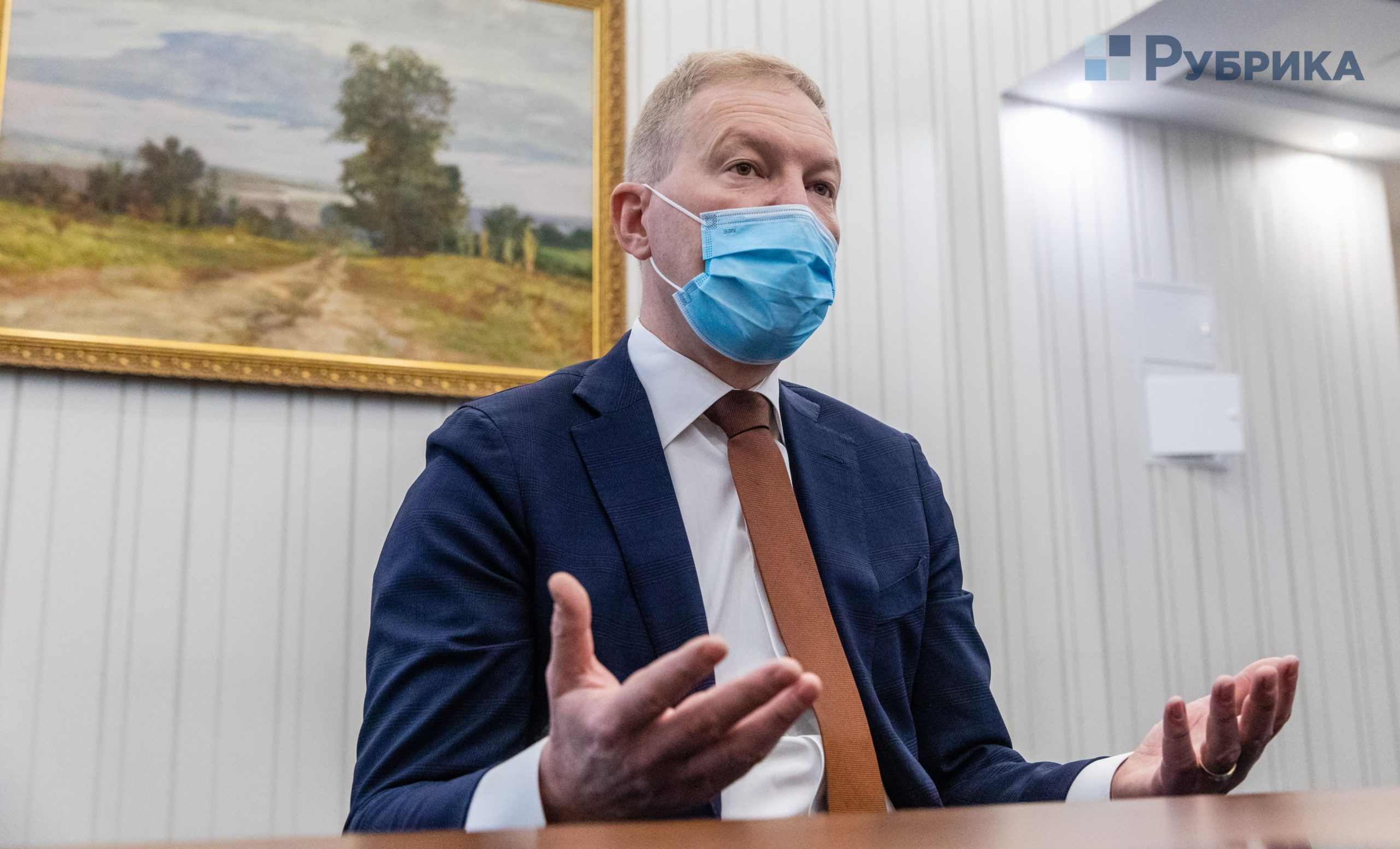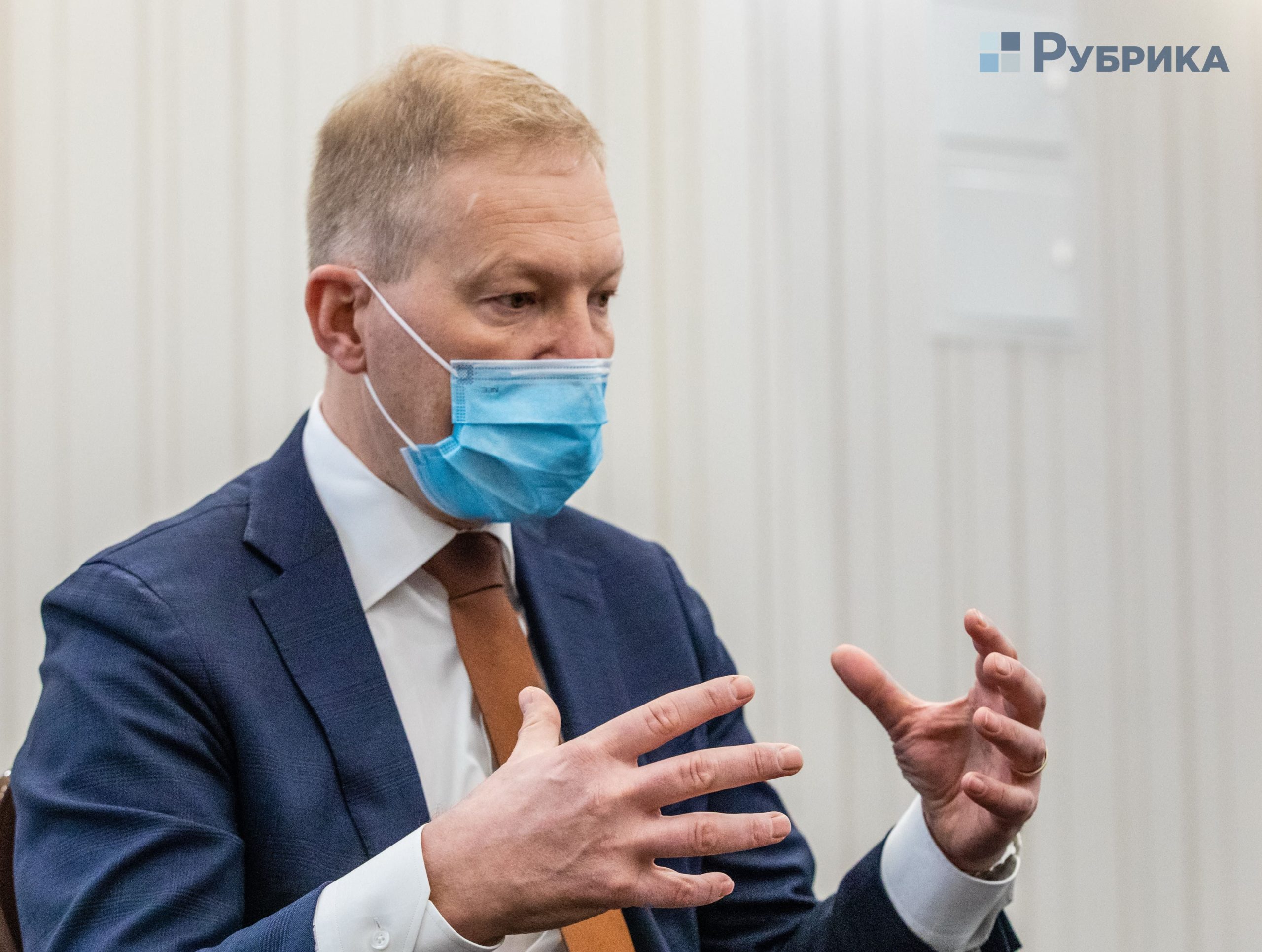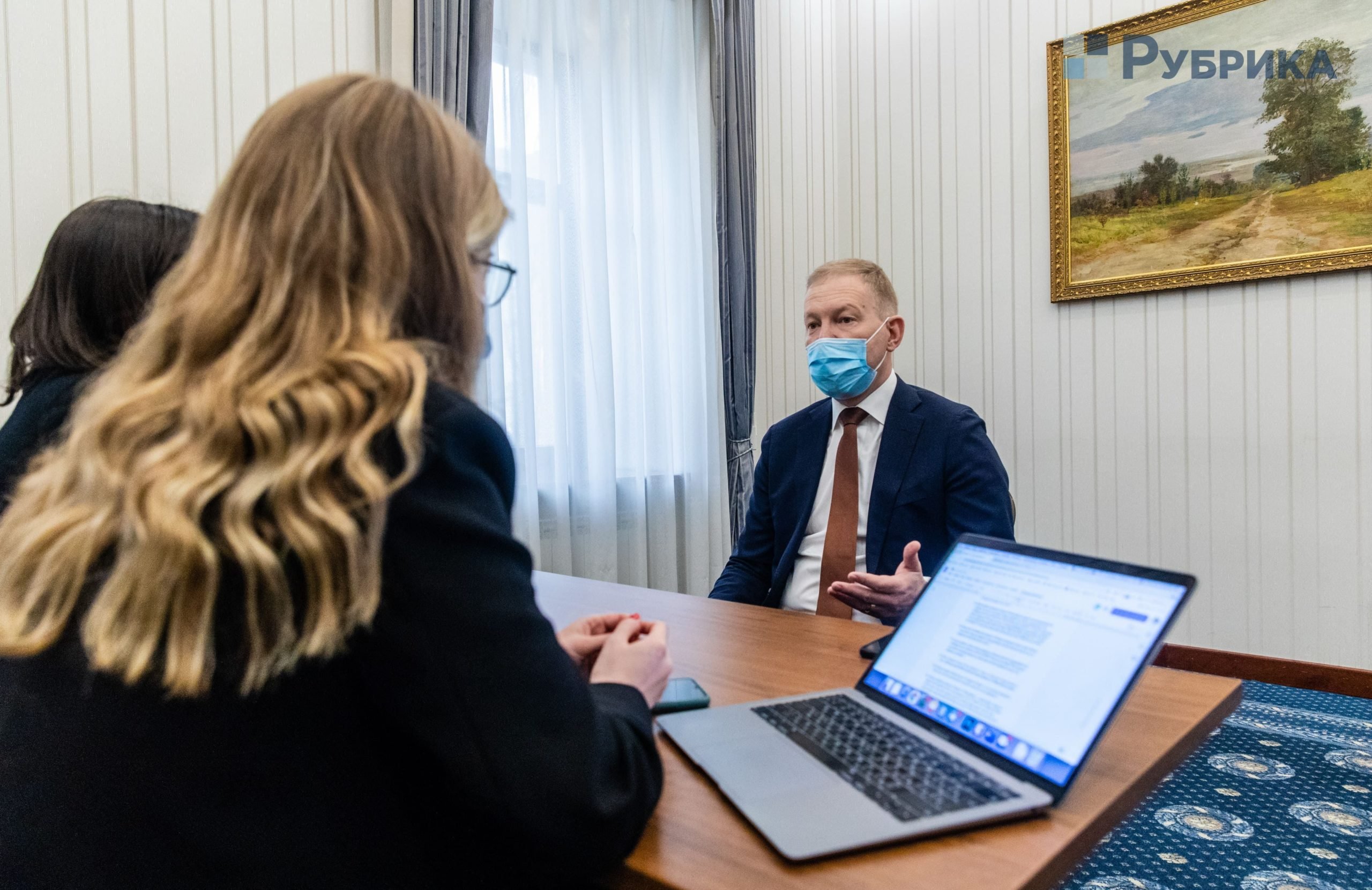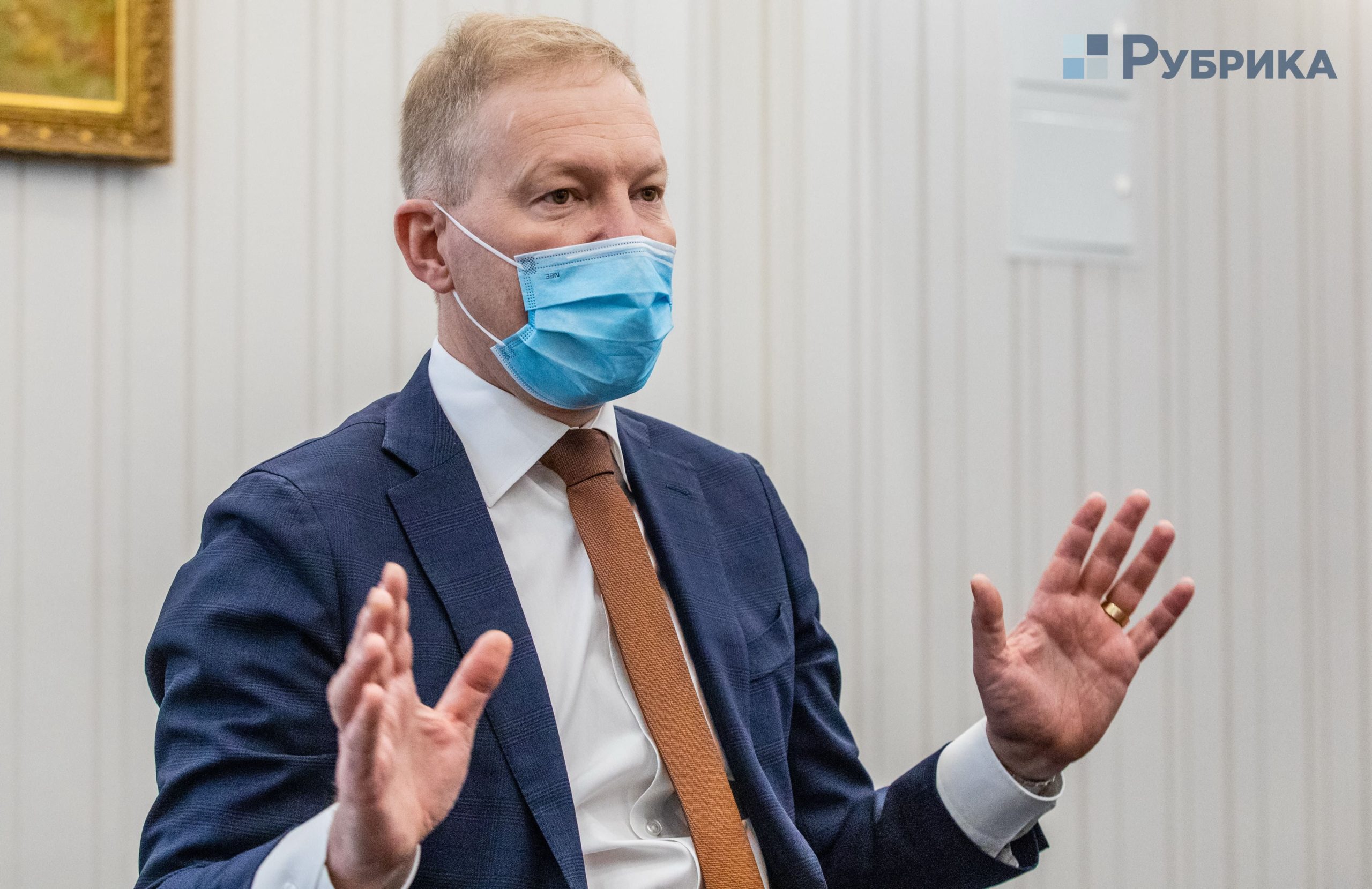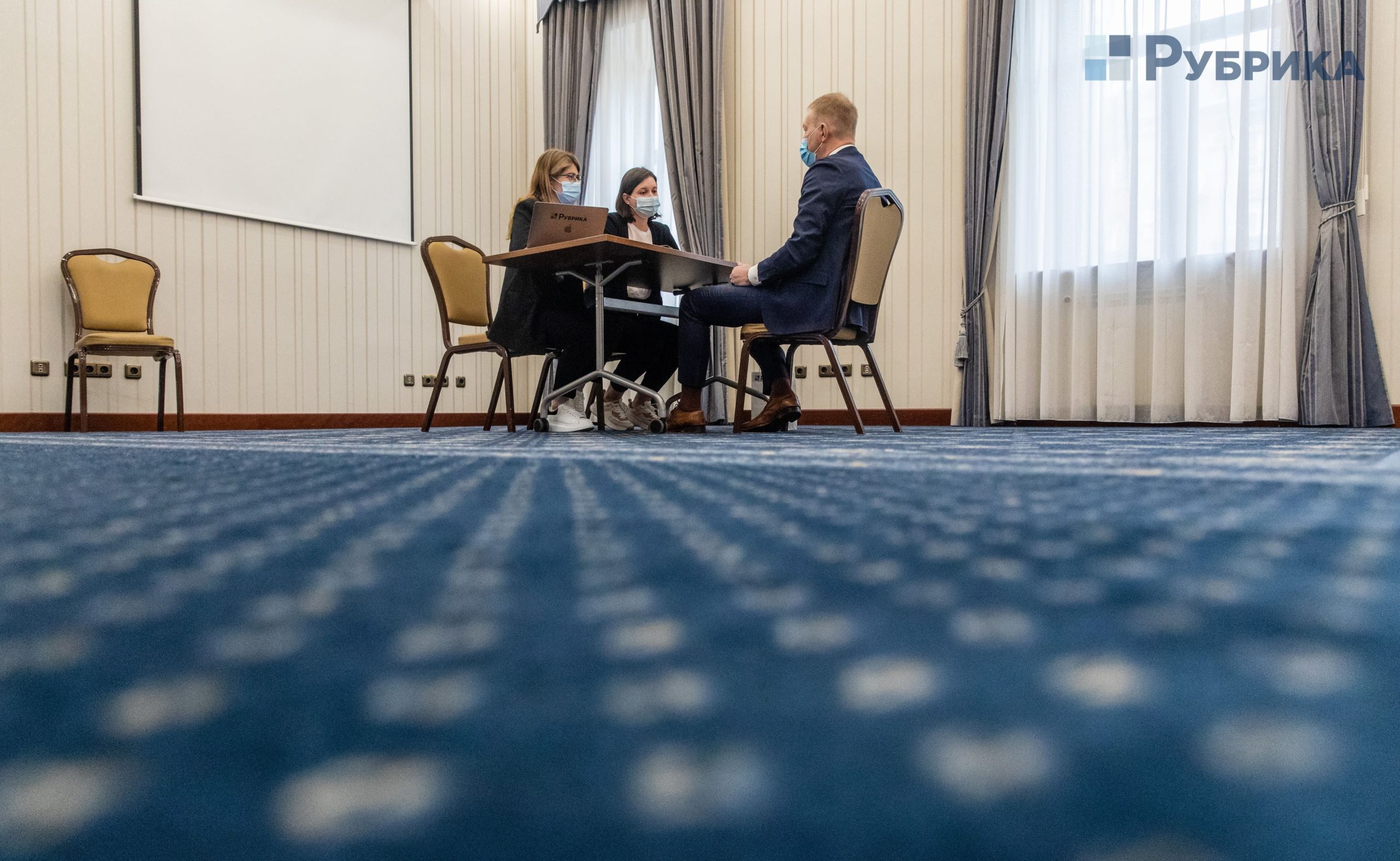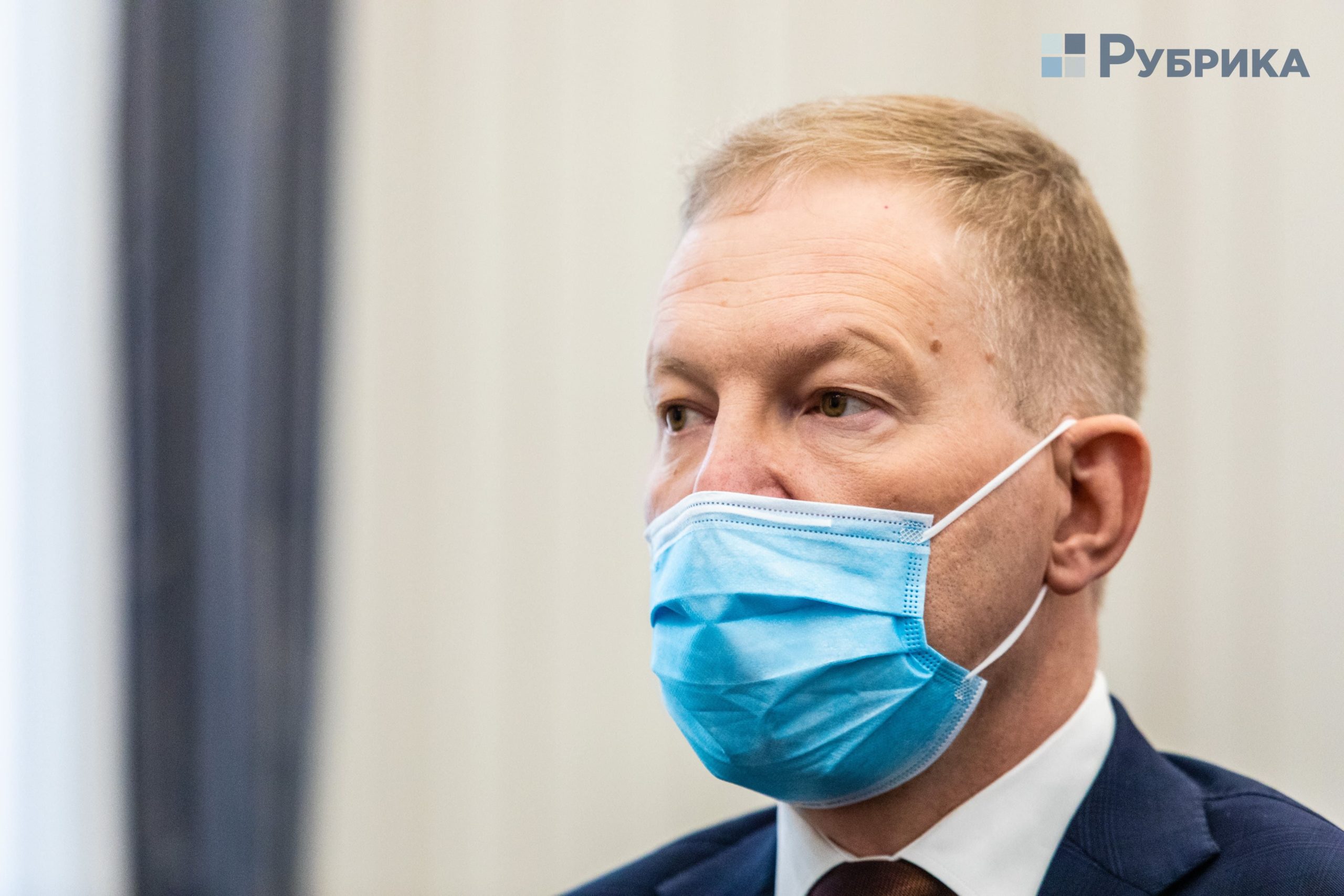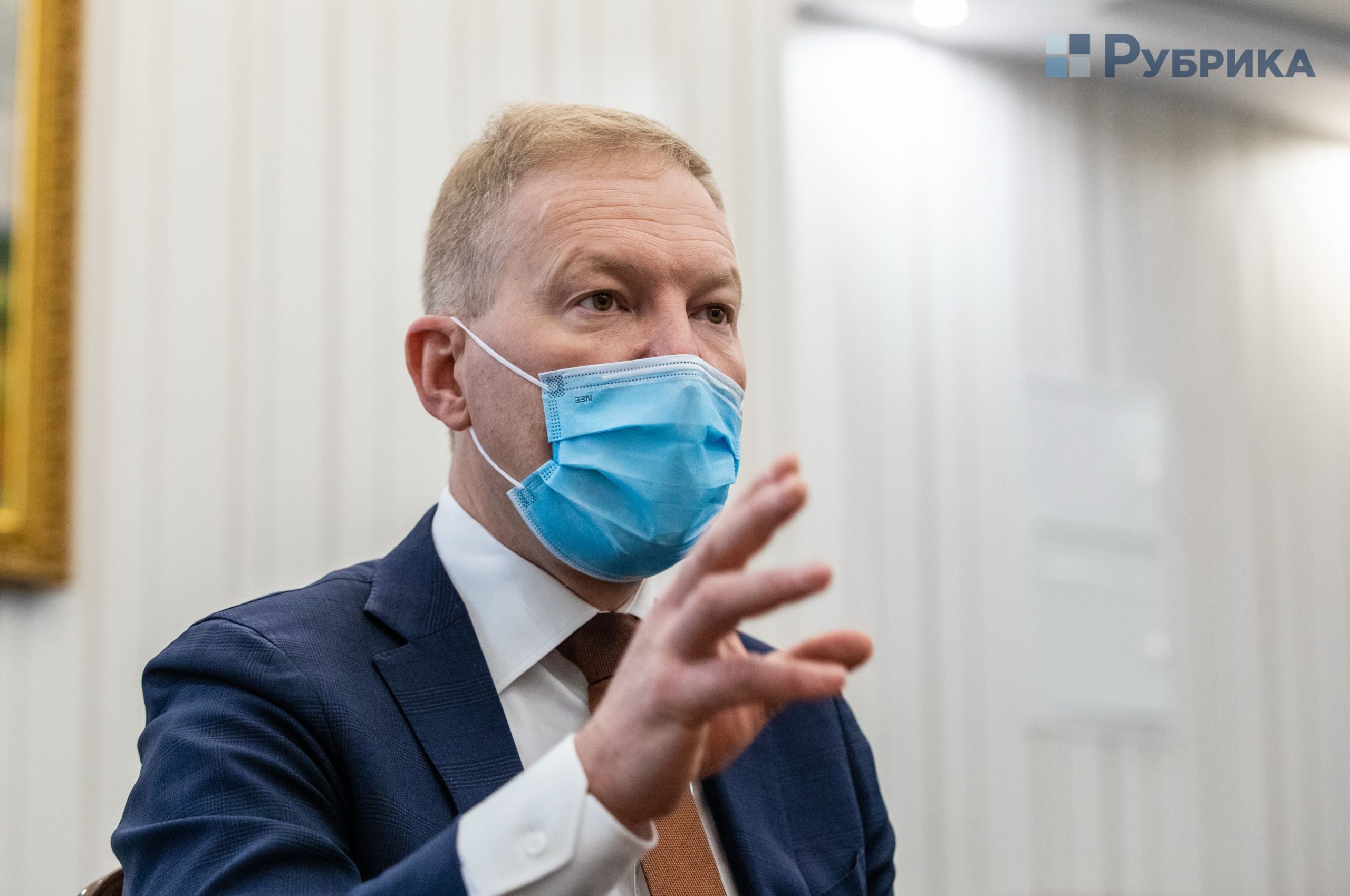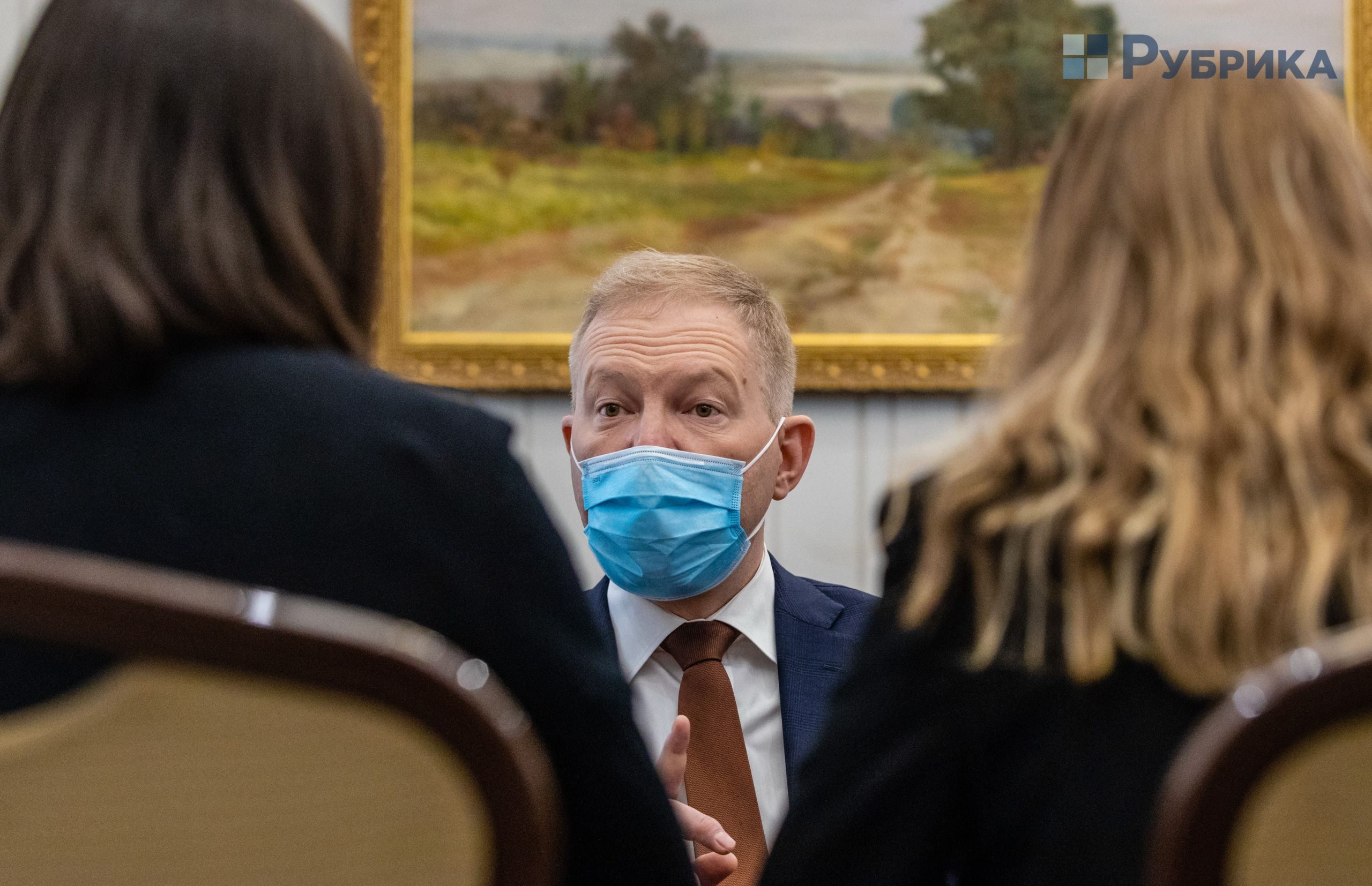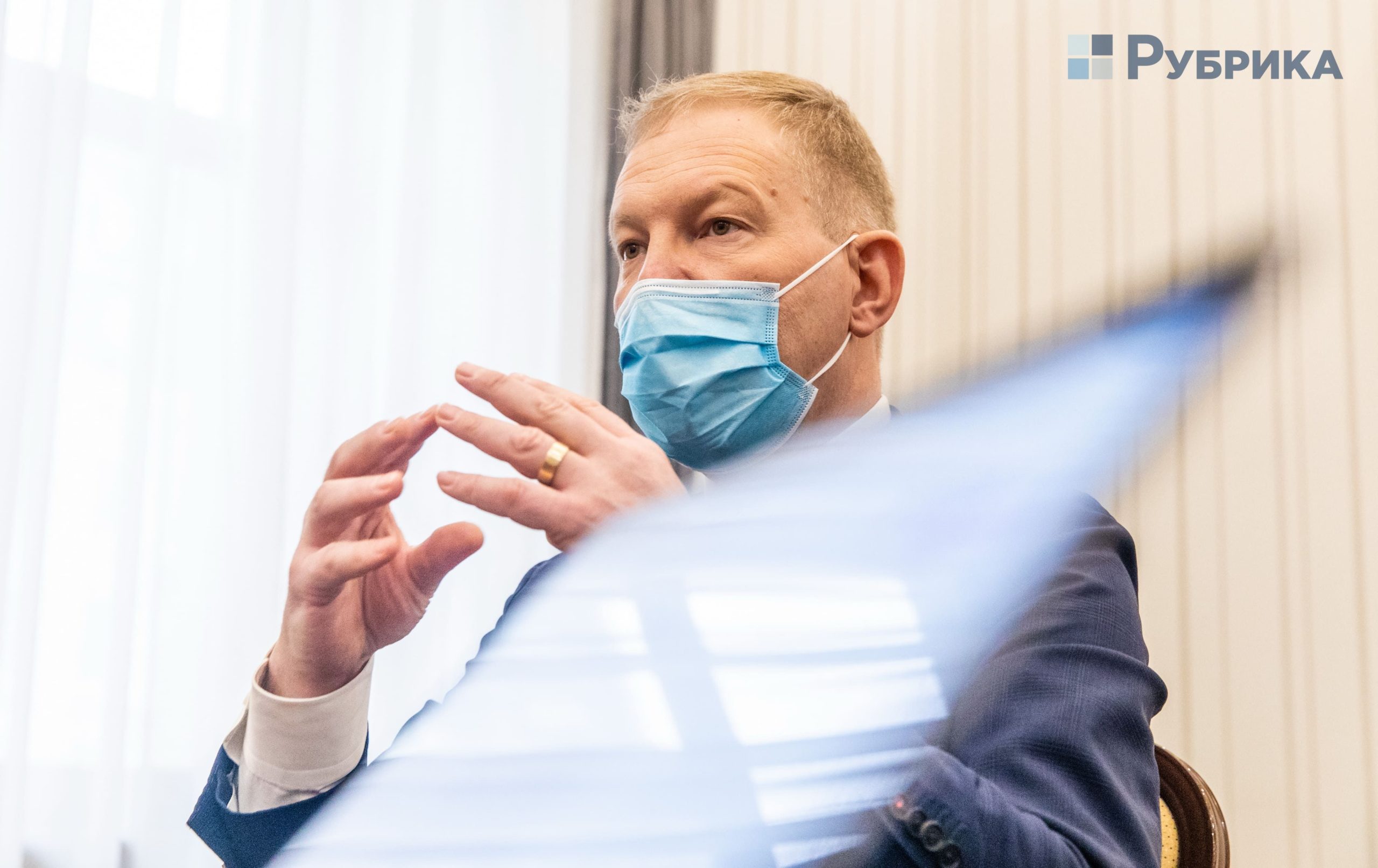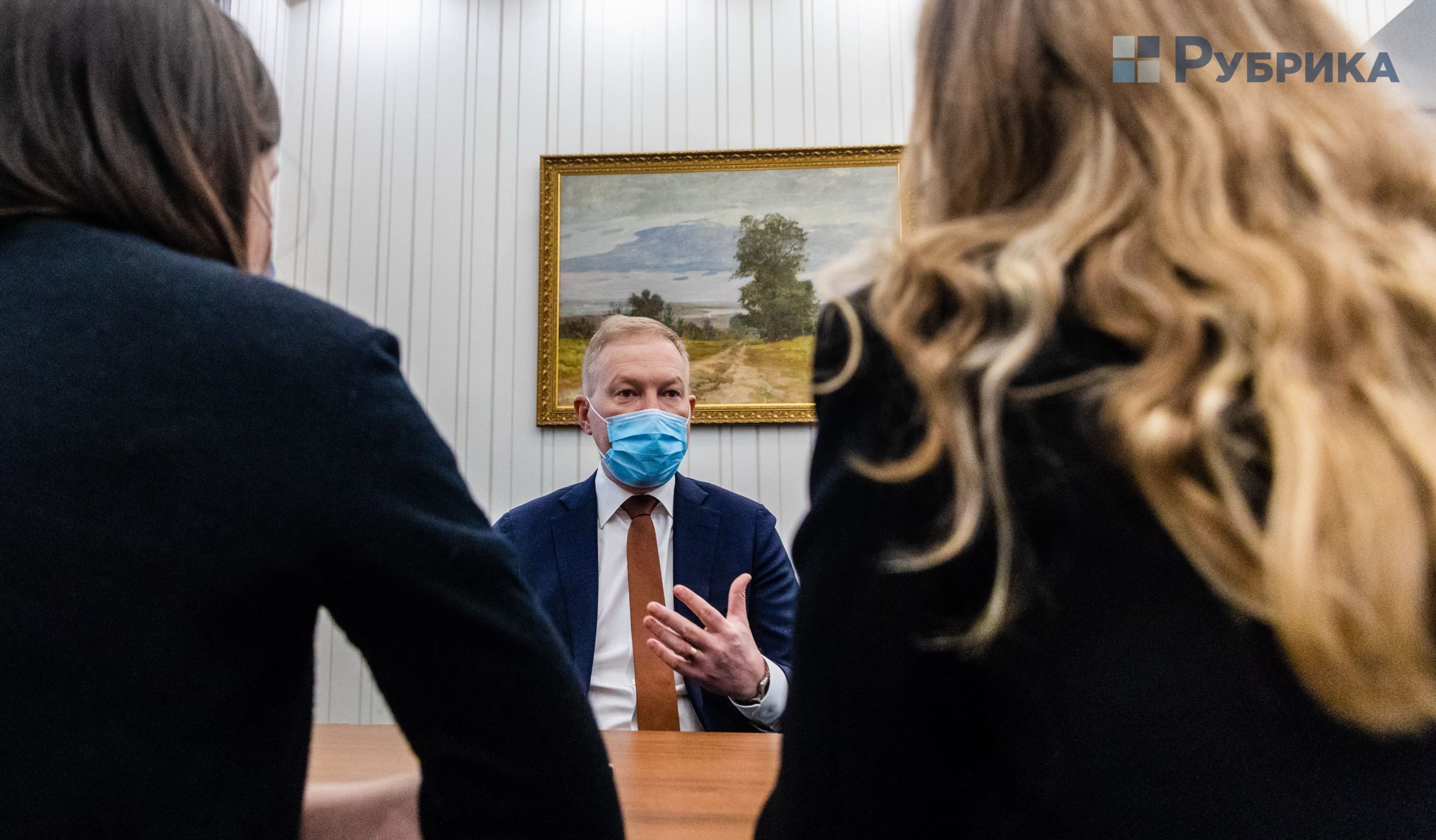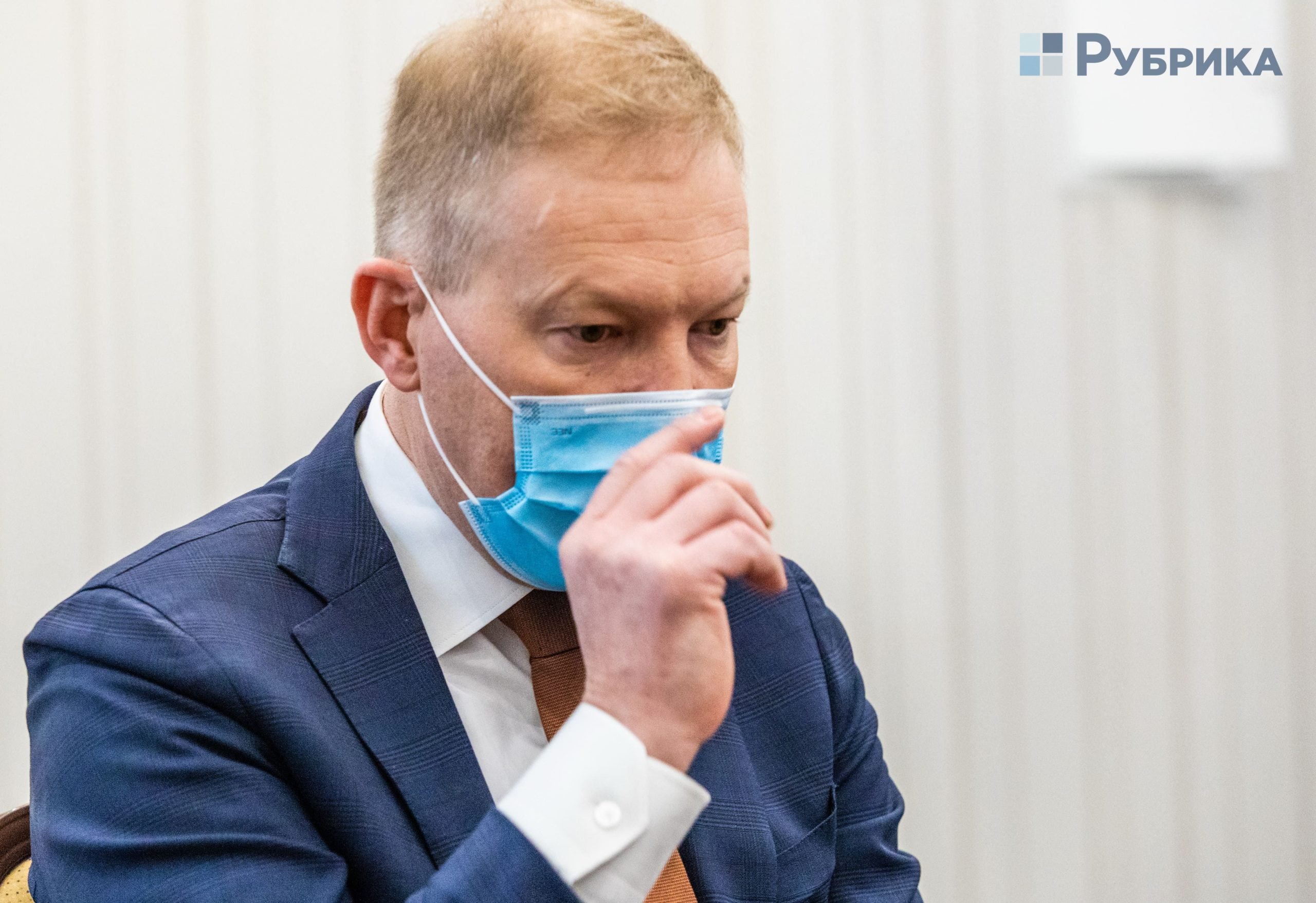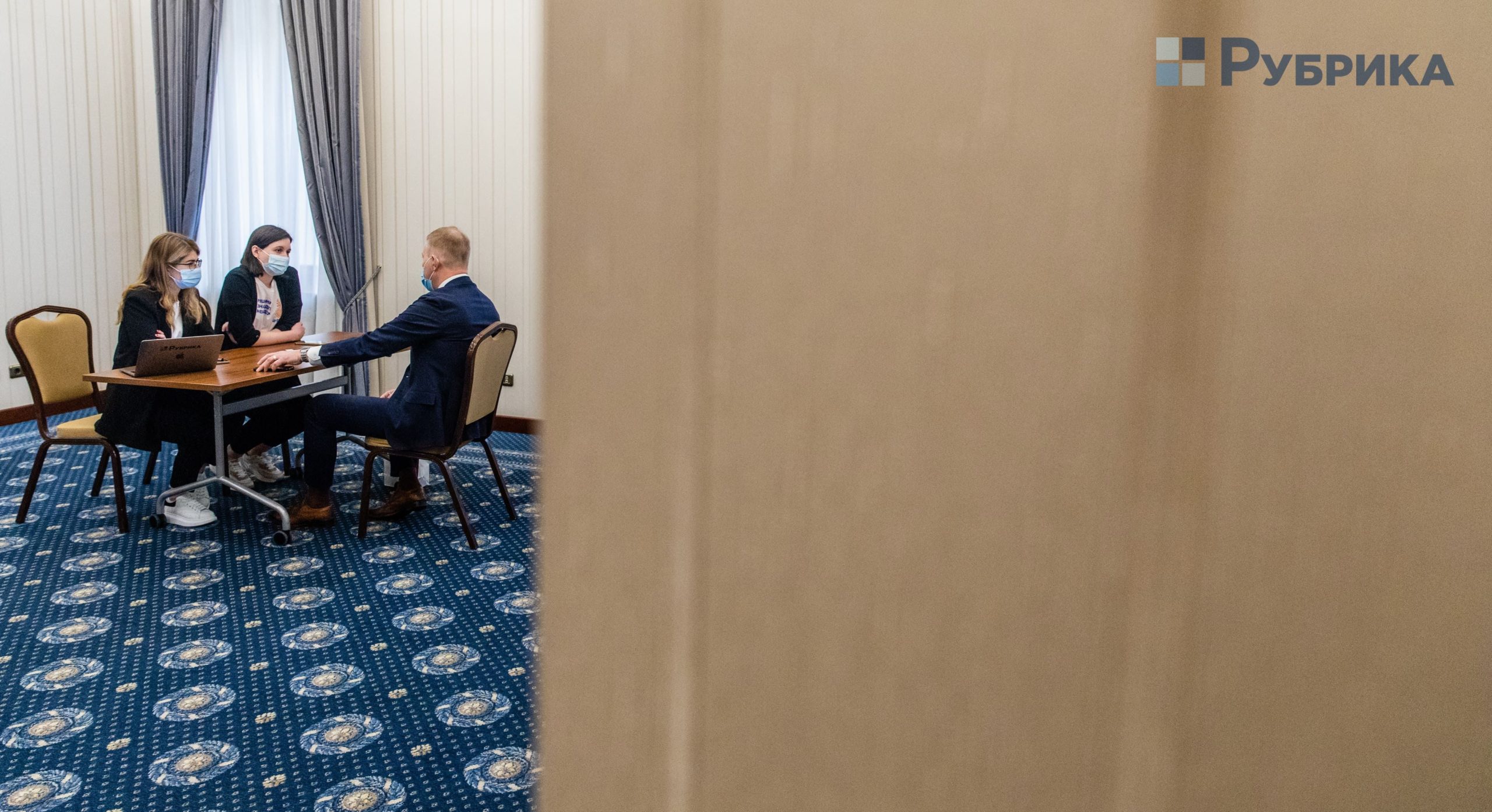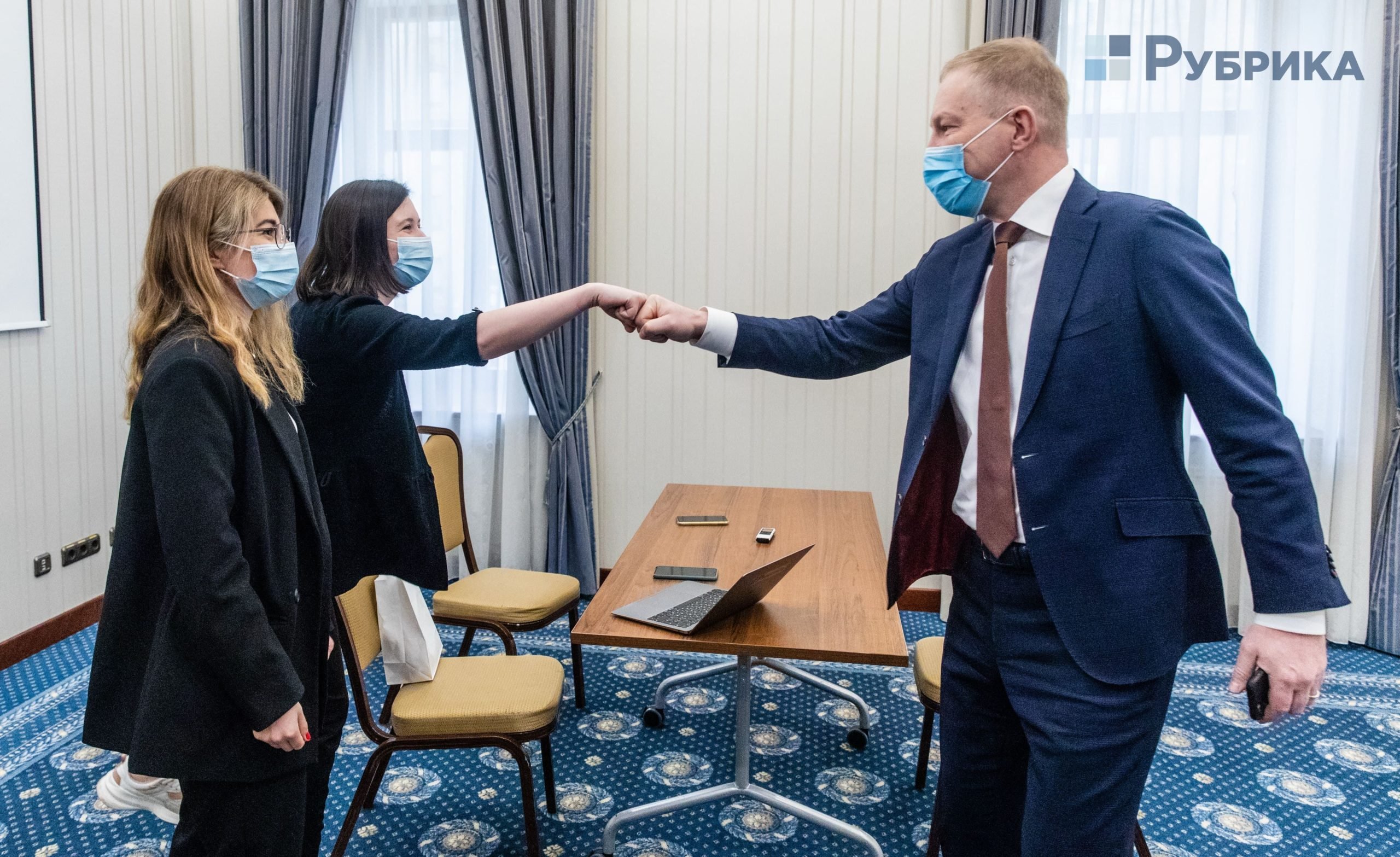"The Minsk process and mormandy format are just a joke": an interview with the head of foreign policy in the Estonian parliament Marko Mihkelson
Will Moscow manage to hold Yalta-2, and what are the conclusions after the escalation of the situation in the East? Read in an exclusive conversation with the initiator of the visit of the Baltic parliamentarians to Ukraine

This week, three foreign policy committee heads of the parliaments of Estonia, Latvia, and Lithuania came to Ukraine with a joint visit. We managed to get into the busy schedule of the visit initiator, Estonian politician, and foreign policy expert Marko Mihkelson. He's one of the loudest and most critical voices alerting Europe about the Russian threat.
Rubryka asked him what he thinks about the recent escalation between Russia and Ukraine, how well Ukraine handled it, and what the representatives of the three countries that are one of the biggest supporters of Ukraine in Europe want to say with their visit to Kyiv. Marco Mihkelson addressed the elephant in the room — the possibility of war and further escalation — without an ounce of sugar-coating.
"You need your own proactive position"
– You're one of the heads of three Baltic countries' parliament foreign policy committees visiting Ukraine. Tell us a little bit about the visit. Why are you here?
– Actually, this was an idea which we generated only a week ago. While the situation was and still is quite tense around Ukraine, it's very important to pay this visit to Kyiv and also to the East of Ukraine. There are two reasons we're here: firstly, to show solidarity, strong support to democratic Ukraine, and secondly, to get first-hand information. What's going on, and what we need to do together in order to put a stop to Russian aggression against independent countries (not only against Ukraine but against many others).
– Why do you think Russia made this step? Why did it concentrate its troops along our border and then withdrew its forces saying that "the training was over and the aim of the training was reached"? What was this measure for? To test the waters? To see how every party was going to react? What do you think?
– It's not over. Very often I have to remind people in the West, for example, when I talk to my colleagues in other countries or participate in the "debates" on Twitter, that war has already been going on for 7 years. It's longer than the Second World War. So this was still only one episode of the grand strategy of Russia that just can't digest that there can be one happy democratic independent Ukraine. In the 2008 NATO summit in Bucharest, Putin said that a nation like Ukraine doesn't exist. That tells you a lot, and this is not the only time when this kind of attitude was expressed by the Russian leadership. This is why I'm more than sure that there's a strategy and an aim to try to destroy Ukraine as a democratic nation, as an open society, and as a stronger civil society. I don't believe that this could be a successful aim with what you have gone through and how your society has changed, but still, there it is. The restoration of the Russian empire is engraved in Russian foreign policy strategies, and this makes any reasonable talk about settling relations with Russia very difficult.
Russian troops are not going back in their entirety.
We know that the 41st army is still kept close to Voronezh. Russians are also keeping their troops near Rostov, and in Crimea that is occupied and is basically one big military base, probably the most heavily militarized zone in modern Europe. Why is this? What kind of aims does Russia have militarizing these areas? Shoigu [Russian minister of defense] said a few days ago that if there's a need, they can move their manpower back to use it when they think it's necessary.
– What should we do then?
– We're to understand the reasons and roots: why this pressure is up, why it's not going away. For a meaningful dialogue, you need your own proactive position as well.
One of the results of the recent crisis was that Western countries like the USA are ready to talk to Putin. We don't know if that summit is going to happen, but at least it's on the agenda at the moment. But the problem is that Russia has escalated the situation and tried to push the Western countries. We don't want war. Nobody wants war. We don't want to be in a situation where any step could be very costly or catastrophic. Russia is a nuclear power, Russia's military might is significant. And it's natural that in diplomacy, you try to lessen tensions and come back to normal negotiation format through diplomatic channels or direct talks.
As we have seen in the case of the so-called Minsk process or Normandy format, this is just a joke, excuse me.
This is just a setup by the Russian side to break the Western powers. Why is the USA not included? Why is the UK not there? Why isn't the EU participating and being a part of this process? Because Russia would like to divide Western countries and set its own agenda.
Luckily Ukrainian leadership has done a lot, and I really appreciate this. I know that this has been a very rocky road for the authorities here, but at least there's this very sober understanding that there can't be talks with terrorists, that Russia must recognize that aggression against Ukraine, occupation and illegal annexation of Crimea is an enormous violation of international law. And Russia must recognize its participation in this conflict. So far as we can see they don't recognize this. And this is a problem, it makes any meaningful dialogue impossible.
And last but not least, the West must not be afraid to escalate if there's a need to do so. I'm not saying escalate militarily but escalate with strength, with solidarity, with common strong positioning in support of Ukraine, and tell Russia that we are those who set the agenda here. We are standing by a democratic nation that needs our help and support, and thus, the important topics of, for example, NATO membership and the EU perspectives must be on the table.
"We must be ready for Crimea" — words from 1994
– We all know and recognize that the reasons why Russia does what it does are deep-rooted and they cannot be easily solved. How can we expect that Russia will ever acknowledge that it is its aggression, its violations? You said that nobody wants war, and it's true. Probably, except for Russia. What shall we do about it?
– Of course, Russia wants war. Every single day your soldiers are in imminent threat defending their country. I recently retweeted the post of Illia Ponomarenko, I think, he was in the trenches a couple of days ago. This is like World War One. In Europe, no one can understand this. That your soldiers must be ready for action every single minute, and it's been already for seven years. And this is sort of a forgotten war, people continue to live their lives in their usual way. But we are here at the moment. Even during this interview, we're talking about war and the possibility of war. The talk about war is normalcy, it is our reality.
I was a journalist and I worked in Moscow for 3,5 years. As a young man back then I was shocked in a way. I really hoped that after 1991 Russia would get out of this nasty authoritarian imperial past. And then I saw what they did to their own people ㅡ Chechens. President Dudaiev always wanted to follow our path, become independent, or at least a semi-autonomous republic. But this dream crashed. With thousands of people, perhaps even tens of thousands of people killed. I understood then that this kind of imperial reincarnation is not over. It will always haunt us. I remember visiting Ukraine in 1994, I did an interview with your foreign minister Zlenko at that time and wrote a story for our national daily newspaper telling there that we must be ready for Crimea, we must be ready for Russian action against Ukraine.
– Wow! What a prophecy.
– Knowing all of this we have to understand that to defend our freedom, our democratic values, to be together with those who share these values is the way to face Russia. Because Russia is not the only authoritarian country in the world that would like to change the rules of the game. Overcoming the Russian threat will take a long time. If someone thinks that the post-Putin era would be immediately different, then think about the people. Think about the enormous results of propaganda. It's been turning people against Ukraine and the West for the past 100 years. Up to this very moment, there was a fight against western democracy. In any case, Russia is not going to change immediately. The only thing that can change ㅡ and we see it from the remarks of Lavrov, Putin, and others ㅡ they really get nervous when we talk about a united Europe and the West, and the common action to defend our values.
– Speaking about the recent escalation, how do you think Ukraine responded? Was it a good response?
– I think Ukraine did well. I know how difficult it is to keep away from provocations. As you remember, at the very beginning of this escalation, Russian leaders were saying things like "if something like in Georgia in 2008 is going to happen we won't stop until Kyiv'. Or "we are ready to bomb the presidential administration here in Kyiv". This is not lunatics talking but real persons with the power to decide. Overall the response Ukraine gave was a response of a mature democratic nation. There have been discussions, the unity in the defense community, and readiness to defend the country is much higher than it was in 2014. Everybody recognizes that. Your defense forces are now well located, well experienced, and also supported by our nations. Looking from the distance, it seems that your leadership knows what to do.
– Could we have done more? Did we use all possible means to draw the attention of the world to our situation?
– We don't know how much it worked but we know for sure that immediate strong vocal solidarity and support given by world democratic leaders was enormous.
I was here at Maidan in January 2014. Came here to understand what was going on. What people who were standing here in the center of Kyiv in minus 30 degrees were after. And even after being to Chechnia and some other places as a journalist, this was shocking for me (in 1993-2000, Marko Mihkelson was a reporter and editor of the Estonian newspaper Postimees, – Ed.). It was absolutely shocking to see what happened those days in the center of the European capital like Kyiv is. And after that, there was a significant break within your whole society, a breakthrough from the past to the future. At that moment Ukraine was much more alone than you are today.
In 2004, when I was already a chair of the foreign affairs committee at the Estonian parliament, after your Orange revolution I visited one big European country. My counterpart took me to the map and said: "Please, tell me where Ukraine is and how we should understand all that is going on there." That was the recognition that Ukraine is not some part of the Russian Empire or the former Soviet Union. But it was a strong and democratic nation, a relatively big and powerful and in many terms rich country in Europe.
Even in 2014, only a few understood what was going on in Crimea when it already happened. We helped our partners to understand: these are not some local forces, these are Russian special forces taking over an independent country's territory as we watch. Today there is readiness: intelligence readiness, early warning readiness. Perhaps it is one of the aspects why Russia hesitates a bit more to openly use military power.
If someone in Moscow thinks about conducting Yalta-2, say, to divide Europe again for the zones of influence, I don't think that in today's Western world one single leader can accept this kind of attitude because it would come out and then they are going to be destroyed as a democratic leader.
In March 1997 in Helsinki, there was a meeting held between Clinton and Yeltsin. I was also a journalist who covered this summit. At that time we were only on the path to becoming a member of NATO. During that summit, Yeltsin asked Clinton not to take Baltic states to NATO. "We will cover them, give them security," he said. Clinton said no. This was in 1997, without this kind of social media we have today where every single moment can become public in a second.
"Don't even think about Russia's threats"
– Russia strongly opposes Ukraine joining the alliances such as the EU and NATO, we know that it will stand by this until the very end. At the same time, Baltic countries managed to get away from Russia, even though they were part of this imperialistic plan and ambition. We understand that the time was different, the situation was also different. But maybe there are some similarities, some experiences that Ukraine might take from there and use?
– This year you will celebrate the 30th anniversary of the Declaration of Independence from 24 August 1991. This had an enormous impact not only on you and the future of Ukraine but also it has told the Kremlin that times of the former Russian Empire are over. The declaration of your independence on August 24 told the West that it was not only the Baltic states that wanted to get away from Russia and do major changes. At the end of the day, it gave you recognition. Yeltsin wanted to send the troops immediately to Ukraine in autumn 1991 but he understood that it was not the way to handle the situation. They were weak.
One of the differences between the 1990s and 2020s is that Russia is much more powerful now and much more ready to use nasty tricks and turn to military power against us. When I did interviews in the 90s in Moscow I heard phrases like "if you take one step closer to NATO, we will send all Estonians to Syberia. You will never come back. We will kill everybody" a million times. Such threatening rhetorics. They were coming not only from Zhirinovskiy but also from analysts who had big names. But we didn't think of it. Okay, Russia tells us this. Does this mean we will step back? No. This is the first lesson for you—don't even think about it. This is a manipulation Russia does now killing people in the name of not allowing Ukraine to become part of the Western civilized world. You have chosen your path and the majority of people very much support the future membership in NATO and the EU.
And secondly, it wasn't also the aim on its own for us — "Please take us as members, accept us as members" — we also had to do something. The key point for Ukraine at the moment is not to become lazy, not to hope that if you fight in the East, people in the West will accept you as a member of the alliances purely out of solidarity. You have to build on what you have already done, making irreversible what is a democratic Ukraine. And of course reforms —you have heard many times every Western visitor telling you to fight against corruption, reform your judiciary system, and so on and so forth. It is also important for Ukraine, it's not only somebody's checklist in Brussel or other capitals. This is what Estonia did. We recognized that this is necessary first of all for our own society, for our own country, and we succeed.
The big difference between the experiences of Ukraine and Baltic states is that we were lucky to use the time when Russia was busy keeping itself together, fighting its own people in Chechnya, getting down their independent media, putting oligarchs in places Putin wanted them to put. Nevertheless, there will always be windows of opportunities, and your leaders must recognize them. And secondly, you have to have good friends who will help you recognize the moment and help you drift through these troubled waters. The Baltic states are small but we understand immediately what is needed and what is necessary.
– I think Ukraine is very grateful for that. But Russia is not only dangerous for Ukraine because of its military power. It's powerful in its informational means, like propaganda. How should we, in your opinion, oppose that? How should we fight this hybrid type of war and what's the Estonian experience with that?
– The first and most important weapon is exactly what you do — professional journalism: professional, critical, open-minded, well-edited. You can fight by banning pro-Russian channels and sometimes you need to do so like you have done here in Ukraine. Because if you allow such channels that call for war or for a change of the constitutional order of your country to be publicly available, then this is an offense against your constitutional order and you have to defend it. For open societies and democracies, it is very difficult to use methods like banning media outlets but we all must recognize that most Russian TV channels are just pure propaganda. In countries like Ukraine or the Baltic states, where a significant number of people understand Russian and for some older generation Russian is the only foreign language they speak, this is something that can really hurt brains, dismantle people's critical minds.
For Estonia, it's not only about the Russian population living there, it's about the older generation as well, people who have or had a habit of watching Russian TV. Now, if you watch it, please be aware that you are in danger and your brains are being damaged, perhaps even irreversibly because this is very professionally done — the building up of completely parallel narratives of what we have in reality of the world. This should be recognized, there should be some fake news control or something like that.
When I was the editor-in-chief of an Estonian newspaper and worked as a journalist in Moscow in the late 90s, we didn't have social media at that time. I was kind of a real boss who told what our readers could read the next day, what kind of news and opinion stuff they could get and what they could not. I even refused to publish Gerhard Schroeder's article once because it was too long for our newspaper and since the embassy wasn't ready to make it shorter I said "No, excuse me, we won't take it". We all know who Mr. Schroeder is now, so I am still proud of that decision (laughs). At that time we didn't even think that there could be millions of other opinions and possibilities to disperse information through the Internet, Twitter, and other social media channels, and blogs, and so on.
Today the responsibility lies on the editors of the outlets. Today it is easier to disseminate information. It is so easy to create fake accounts to disseminate information that in part, it can even look right but at the end of the day, it's a part of a bigger puzzle influencing people's minds. Such things happened in the United States during presidential elections. They didn't just go there and change the numbers of the votes. They filled the public debate with topics that created a very well directed sort of content that divided society more and more and made it easier to manipulate.
Today the pandemic is another source of manipulation: we all know how Russia is using Sputnik, its "vaccine diplomacy" and disinformation it grows. Russia spreads Sputnik not to really try to help people, find ways to get over this global disaster but to divide societies, pay against our actors in vaccine markets. In Estonia, we see the results of this when people in some areas say that they don't trust anything else but Sputnik.
– So you think it's more of personal responsibility of every user of social media or every editor of any news outlet than a state issue?
– Yes. Social platforms as well. I think Russians didn't expect it but finally, Twitter, Facebook, Google, YouTube, and others can recognize the problem. They started to recognize that there are channels built up to destroy meaningful debate or just spread fakes, and take action in this regard.
Education is extremely important as well. I think that it is necessary now for schools to teach the younger generation to use the sources of information more critically.
– Coming back a little bit to the Russian threat. We know that some experts say that another way for Ukraine to deal with this whole situation is the path of neutrality of so-called "Finlandization," to reject ambition to join all Westerns alliances, be a kind of a buffer zone that's not here and not there. How do you think we can avoid this path or do you think we need to avoid it at all? Is it a real option?
– No. it's not an option. Your history and that of Finland are completely different. In Finland, they don't like this terminology. Finns made their minds up in 95, they joined the European Union, and ever since they are not as neutral anymore as they were during the Cold War when they had to be so in order to save the lives of the people. This was very tricky for Finland. We know that by heart and they are very close friends and neighbors of ours. And this also tells you a story of how difficult it is to be an independent state, being a small state but a neighbor of Russia.
We all know that Ukraine has a completely different meaning for those who still dream about the Russian empire. How often have we heard about coals? About Crimea and Kyiv, and different historical moments and symbols from the past? They are connected directly to this narrative about how the Russian world must be one, must belong to one community.
Ukraine can't be a neutral country.
You have to make a choice as you did it already many years ago. Actually, you made this choice on August 24 1991 if not earlier. Ukrainian history has been very, very tricky, very rocky, as well as the way of finding a kind of common national identity. But it is also something amazing. I am a historian by education, so I always tell those who seem a little bit tired of "slow changes and reforms of Ukrainians" to think about their own path from dictatorship, from being not recognized as a nation, when their national identity was under enormous pressure, and so on, before they flourished. And Ukraine is doing it for only 30 years, having all these troubles and fighting for territorial integrity at the moment, in real times of war.
George Kennan, a very famous US diplomat in 1944 said that Russia recognizes only two kinds of neighbors: those who stand and defend their own interests and then their relations can be critical and not so easy, and those who are its vassals, who bend over and allow to decide everything about their lives specifically about foreign security and defense matters. And I don't think that proud Ukrainians ever allow this to come back.
So I really can't see neutrality as a path for Ukraine. Think about our experience. We declared our neutrality in the 1930s. We wanted to stay away from the big battle. What happened then? We were destroyed, we lost 25% of our population being a neutral country, not offending anyone.
"You have to work day and night and never rest"
– With Ukraine's current pace and situation, how close do you think are we to actually joining NATO and the EU?
– You are much closer than a year ago, you are much closer than 30 years ago. But nobody can tell you that this is going to be easy. If that could be the choice of only Baltic states, you would probably be full members of NATO immediately. Unfortunately, to accept you as full members of NATO, 30 member states need to agree on that. So, how to achieve this? Through diplomacy. You have to work day and night and never rest. Don't think "maybe they don't accept this because we are in direct conflict with Russia and maybe because we are not yet ready because of this or that." Don't think that. Germany was also in direct conflict in many ways. It was divided during the Cold War but they were accepted because it was a matter of geopolitical interest of the West.
Today we don't have the luxury to just accept those who would like to become strong democracies. This is something we should leave not only to the hopeful words but also deeds and you have to work very hard to get a good meeting at the June NATO summit. I mean Ukraine's participation there as a guest. The president must work hard to be at Biden's office before Biden meets Putin. There should be constant work. In 2008, NATO said that Ukraine will be a member of NATO and I haven't heard that there is any single member state that could step back from that agreement. But it will take time and your efforts with the internal reforms and so on.
– What is Ukraine's value for NATO and the EU? It is clear why Ukraine wants to get in, but why do NATO and the EU want to see Ukraine included?
– Because we all want to have stable, normal, and predictable relations with Russia. The only way to handle problematic Russia is to help them recognize that for their future as a rich country that Russia is to open up, be plural, allow their people to enjoy the same freedoms you have managed to get here in Ukraine, and be a successful part of, if not the Western world, then the world that understands that today we are so interconnected that we all can benefit from that. Putin is totally afraid of so-called colored revolution democracies. He is afraid of liberalism, democracy, that people can enjoy their freedoms not sitting in jails as Navalnyi does.
I am more than sure that Ukraine will succeed as a strong stable democratic country in Europe. You are part of Europe. You'll be a member of NATO and the EU.
Because if you believe in something, not religiously but politically, and have a vision about truly united Europe, this is just unavoidable. These are words but you are actually fighting against aggression, you fight for the freedom of Europe. This has such a deep meaning. Some say "this is only political rhetoric" but if you lose, if you raise your hands and say "let's allow Russians to tell us what to do with our lives," then what do you think, will Russia stop? No, of course not. We have gone through this already in the past but I am optimistic that in Russia, there are millions of people who would like to see the alternative for their future. Yes, they are silent in many ways and it will probably take decades. But the first step is to build a strong Ukraine's democratic nation.
– If you had to estimate Ukraine's progress with reforms on a scale from 0 to 10, what would you say?
– I would say 7. And one of the most important parts of that is free elections. This is so important and this is the basis for everything. Yesterday I met some of your MPs, all from different fractions. Your parliament is much more turbulent in the ways the discussions are going on, it's not like Estonian parliament that is very calm, but they actually represent the people's will.
There is still a long way to go, and perhaps these three last points are very difficult to reach. But you will reach them fighting against corruption, and reforming the judiciary system so that people will feel safe doing business knowing that everybody is equal toward law, and so on.
– What are the three points that come to your mind when you think about Ukraine?
– The first point is that Russia is trying to destroy Ukraine as a democratic country and dismantle your territorial integrity as they have already done but they won't succeed. Even what Ukraine has done with the Crimean platform is extremely important.
The second point is the fatigue in the West to deal with enlargement because Western countries, economically and in many other ways because of the pandemic, are not as ambitious to expand at the moment. So this is work for your diplomats, for our diplomats.
And last but not least: the Ukrainian soccer team is better than the Estonian one (laughs).
– That's a statement! And the last question: what are your favorite books and what can you recommend to read?
– As a historian, I read a lot about history and write books myself. Well-known Yuval Harari writes about history; books like Sapiens and Homo Deus he has written recently became global bestsellers. I like not only the way he writes but also how he discusses current problems and brings history into this discussion. Today's journalism is based on headline messages and very short statements (like on Twitter), so you must already understand a full story. The full story starts from history, and this is why he gives a very good understanding of where we are. And it actually dismantles a lot of myths that we live in every day.
Another book I want to highlight is Victor Frankl's Man's Search. This is something you should have on your reading table all the time, not only for one moment. An author is a person who went through Auschwitz and many other atrocities in the 40s. But he became well-known not because he survived but because of the way he helped and still helps so many others to understand that even if you feel like this is the end, your mind and how you adjust it can even help you to get through hell as he went through. It's a book he wrote right after he was freed in 1945. Everyone should read it.
Photo: Rubryka





